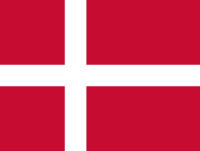As the German bid fiasco proves, and in spades, there is no easy transition out of prohibition. As of this April, it will be two years since the German Cannabis Agency issued its first cultivation bid. Since then, the first attempt went down in legal flames (in court) and the agency in charge, BfArM took an embarrassing hit for committing a “technical fault.” As of April, the second issuance gets its day in court. And then presumably, hopefully, cultivation can start to get going.
However, the German cultivation bid is far from the only time that government officials and regulators have created canna Frankensteins. In every legalizing market so far, in fact, from Colorado’s recreational start in 2014 to Canada, lawsuits, flubs and mistakes have been the order of the day.
There is a growing debate in Europe over how the cannabis industry should be allowed to flourish.States throughout the US continue to model their legalization frameworks off of states that have already done so. No wonder, then that as legalization rolls on, other countries are beginning to study the early movers- for tips on what to do and what to avoid.
New Zealand Takes A Look At Portugal
New Zealand is widely expected to become either the “next” country (or the one after that) to fully legalize recreational cannabis. Further it plans to do so during a national election (presumably ahead of the U.S. but that will be interesting to watch). New Zealand has jumped the gun already and put it on the electoral agenda.
That leaves the Kiwis with at least another 18 months to consider how they might pull it off. Don’t forget, it took the Canadians that long, with one failed initiation date last summer that was pushed to the fall. And that was with a medical market that was already three years old.
 As of this month at least, New Zealanders are looking at several options, Portugal being one of them. Portugal gained distinction by decriminalizing all drugs at the turn of the century and has not looked back.
As of this month at least, New Zealanders are looking at several options, Portugal being one of them. Portugal gained distinction by decriminalizing all drugs at the turn of the century and has not looked back.
The country has seen a steady decline in all the bad stuff associated with the black market. Overdoses, drug crime, teen use and HIV infections have all dropped dramatically.
That said, for all Portugal’s forward motion, nobody else, yet, has quite followed suit.
Decriminalization, it should be pointed out, is also only one of the many issues facing a national change in policy. As Canada knows well.
Luxembourg Takes A Look At Canada
The Greens in Luxembourg certainly made news last year when they announced that recreational cannabis legalization was on their five-year legislative plan. In a tip to both U.S. and Canadian discussions about how legalization can increase tax revenues, Luxembourgers are also clearly looking at how to follow suit.
Aurora cannabis so far has the only distribution agreement inked with the country to provide medical supplies, but it is unknown at this point whether Luxembourg will be content to merely import or grow its own.
cannabis so far has the only distribution agreement inked with the country to provide medical supplies, but it is unknown at this point whether Luxembourg will be content to merely import or grow its own.
One of the biggest problems Europeans will encounter immediately in looking at the Canadian transition to recreational use is that the government literally had to mandate an additional five-year period for medical use after the beginning of the recreational market. So far, at least, Luxembourgians appear to want to do this the other way around. They have already created a multi year test and study program for medical uses of the drug.
A Big Difference In Approaches
There is a growing debate in Europe over how the cannabis industry should be allowed to flourish. On one end of the discussion who see no issues with the North American model of public companies, in particular, having the greatest influence over the shape of the industry. But this is not the only discussion in the room at this point, particularly given the huge head start the Canadian public companies now have in the rest of the world.
In places like Spain and Thailand, for example, politicians are also starting to bring other models to the fore- including protectionist policies around domestic cannabis production.
Regardless, compare and contrast is a trend that is still in its infancy as the market leaders struggle with the implications of half-baked policies and those who follow seek to emulate the successes but avoid the mistakes.













 What does this mean for the rest of the industry (besides
What does this mean for the rest of the industry (besides  Now the question is how do other patients obtain the same? The NHS is in dire straits. Patients must still find a way to import the drug (and pay for it). And with newly imposed ex-im complications coming Britain’s way soon, there is a big question as to where and how exactly, patients are supposed to import (and from where). All looming and unanswered questions at the moment.
Now the question is how do other patients obtain the same? The NHS is in dire straits. Patients must still find a way to import the drug (and pay for it). And with newly imposed ex-im complications coming Britain’s way soon, there is a big question as to where and how exactly, patients are supposed to import (and from where). All looming and unanswered questions at the moment. The licensing process that has
The licensing process that has  Italy is also starting to establish a presence in interesting ways as multiple firms begin to establish cultivation there.
Italy is also starting to establish a presence in interesting ways as multiple firms begin to establish cultivation there.

 As much as it is fashionable these days to diss Holland, the fact of the matter is that the Dutch pioneered just about everything about the modern movement except clear cut regulation. Coffeeshop envy being what it is, however, it is true that the historical marker of the Dutch market was grey areas. That, however, has been in shifting territory for the last four to five years however. Hard as it is to believe that in just 2014 the
As much as it is fashionable these days to diss Holland, the fact of the matter is that the Dutch pioneered just about everything about the modern movement except clear cut regulation. Coffeeshop envy being what it is, however, it is true that the historical marker of the Dutch market was grey areas. That, however, has been in shifting territory for the last four to five years however. Hard as it is to believe that in just 2014 the 